By E.J. Fagan, May 29, 2014

In his official first act after winning the biggest democratic election in world history, Indian Prime Minister Narendra Modi announced the formation of a Special Investigative Team (SIT) to probe illicit financial flows, or ‘black money’ as they are commonly referred to in India.
Illicit financial outflows are a massive problem for India. GFI research finds that India lost $343.9 billion to illicit outflows from 2002-2011:
By Brian LeBlanc, May 29, 2014
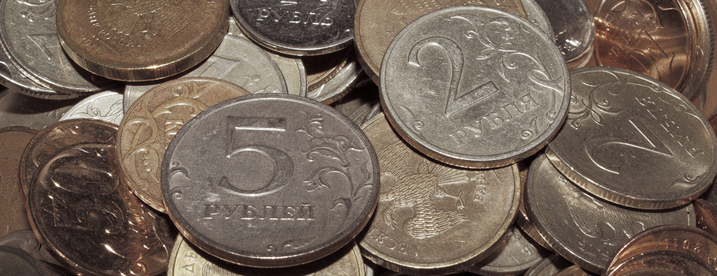
According to data provided by the U.S. Treasury, approximately $13.5 billion in bank deposits held by Russians left U.S. banks in March:
What happened between February and March? On February 26th, Russian military forces began to invade Crimea, setting off the international crisis in the region. Within a few weeks, Western nations imposed sanctions on some Russian individuals.
By Tom Cardamone, May 28, 2014
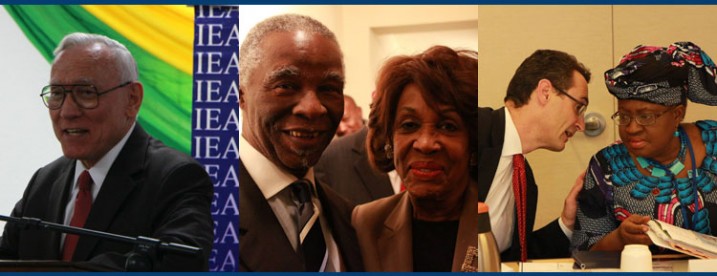
A Quarterly Newsletter on the Work of Global Financial Integrity from January through May 2014
Global Financial Integrity is pleased to present GFI Engages, a quarterly newsletter created to highlight events at GFI and in the world of illicit financial flows. We look forward to keeping you updated on our research, advocacy, high level engagement, and media presence.
This year has been busy so far, with GFI staff traveling to six continents within the first three months alone. The following items represent just a fraction of what GFI has been up to, so make sure to check our new website for frequent updates.
Measurable Change in India
In late April, the Indian Directorate of Revenue Intelligence released a summary of its first two years of increased law enforcement activity targeted at cases of commercial fraud, including illicit financial flows through trade misinvoicing. Their early results have been remarkable: between March 2012 and March 2014, they detected $1.3 billion worth of commercial fraud, and collected $396 million in new revenue.
India is just beginning its effort to crack down on trade-related illicit financial flows, and should serve as an example of the potential that curtailing trade misinvoicing has for development. India began working in earnest to reduce illicit financial flows after a report by Global Financial Integrity showed the economy had lost $462 billion since 1948 due to illicit outflows. Following years of intense political debate and public outcry, the Indian Ministry of Finance declared trade misinvoicing its ‘top priority’ and began working with GFI and others to address it.
By Koen Roovers, Global Financial Integrity, May 27, 2014
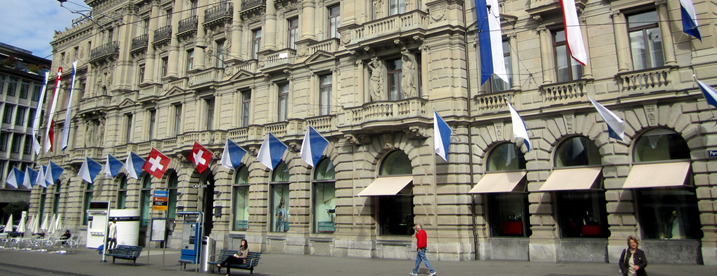
By Koen Roovers
Originally posted on the Financial Transparency Coalition blog
Last week, Credit Suisse, a staple of the Swiss banking industry, pleaded guilty to conspiring to help US citizens “hide their wealth” for decades, in order to avoid taxes. The debate that has emerged in the wake of US Attorney General Eric Holder’s announcement seems to focus on whether or not the fine—roughly US$2.6 billion—is fair. Is it high enough?
It might not be much more than a couple of month’s earnings for this major bank. In the wake of the guilty plea, does this settlement prove the suspicion of many that ‘banks are too big too jail’?
Even so, the punishment might be some conciliation to the US. But is it naïve to think that the bank was only involved in this practice in the US? While the US might have the capacity and power to bring a powerful bank like Credit Suisse “to justice”, other countries might not be in that position.
The official website of Credit Suisse makes mention of 55 other countries of operation, besides the US and Switzerland. Among this list are a number of South American, Asian and African nations. Some of these very countries are at the center of the problem of illicit financial flows – money leaving a country undetected, untaxed, and unaccounted.
By Brian LeBlanc, May 23, 2014
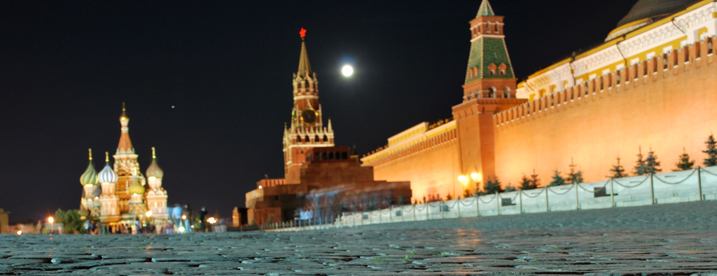
It can be tough to impose economic sanctions against Russian citizens if you can’t find their money. Russia’s very complex relationship with tax havens could make this more difficult.
It is also tough to try to pinpoint exactly how much Russian money is being held in tax havens due to the fact that a lot of it isn’t reported to Russian officials/international organizations like the IMF (that’s the whole point of hiding your money in a tax haven).
The amount that is actually reported is pretty jaw-dropping. Approximately 61% of Russia’s $403 billion in outward Foreign Direct Investment (FDI) is held in tax havens:
Just to be clear, FDI is any amount of investment in a entity which gives the investor some control over that entity’s operations. So, if a Russian billionaire incorporates an entity in Cyprus (often these entities in tax havens are just bogus “shell” entities), and invests $1,000,000 into the entity, that will show up in the FDI statistics.
By E.J. Fagan, May 22, 2014
Welcome to the new gfintegrity.org! After seven long years, we have finally redesigned our website, with the help of some fantastic web designers and engineers. We are still working out the bugs and generating content, and would appreciate your feedback. To tell us what you think, Tweet us at @GFI_Tweets.
Our goal for gfintegrity.org is to create an engine for education and advocacy on illicit financial flows. Nearly a trillion dollars left developing countries last year illegally, resulting in tremendous amounts of economic and social damage. GFI believes that this represents the most harmful economic condition affecting the world’s poor. We hope this website helps us not only make that point, but help guide people to effective, pragmatic policy solutions to curtail illicit flows.
One way we’re doing that is using new graphs and visual aids from Datawrapper, which you will find throughout the site:
All of these graphs are interactive, and the data used to create them is embedded along with the graphics themselves.
By E.J. Fagan, May 21, 2014
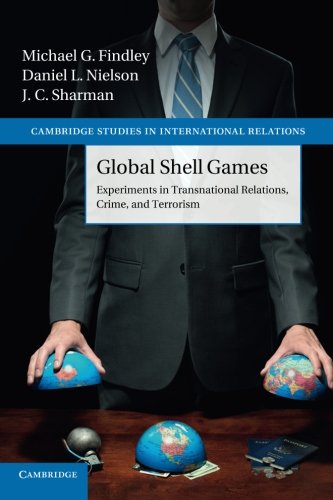 On Friday, Global Financial Integrity hosted professors Michael Findley and Daniel Nielson to talk about their new book, Global Shell Games, Experiments in Transnational Relations, Crime, and Terrorism.
On Friday, Global Financial Integrity hosted professors Michael Findley and Daniel Nielson to talk about their new book, Global Shell Games, Experiments in Transnational Relations, Crime, and Terrorism.
The book follows their ground-breaking paper, Global Shell Games: Testing Money Launderers’ and Terrorist Financiers’ Access to Shell Companies, which was published in 2012. The authors approached nearly 4,000 services in over 180 countries in a random assignment experience designed to measure how difficult it was to convince a corporate service provider or law firm to create a shell company without proper identification.
By Brian LeBlanc, May 2, 2014
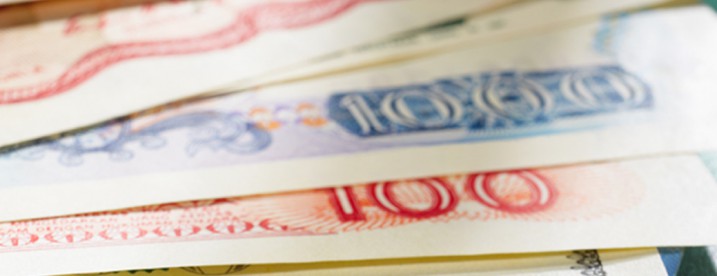
There has been a lot of talk in recent years regarding the extent of China’s investment in the United States. Most of this has been centered on China’s admittedly large holdings of U.S. debt, but the fear has spilled over to other forms of investment as well. A 2012 report filed by the US-China Economic and Security Review Commission, an entity created by Congress in 2000, went as far as recommending that the Committee on Foreign Investment in the US be amended to add a required litmus test for Chinese investment, specifically. This test would make it mandatory to analyze the “net economic benefit” of all proposed Chinese investment in the United States before it is approved.
Being fair, a lot of this has to do with national security, with the rational that Chinese acquisitions of telecommunication companies (for example) might pose a threat to the “cyber and physical infrastructure services critical to maintaining the national defense, continuity of government, economic prosperity, and quality of life in the United States.” How much of this is legitimate I’m not sure of.
Still, does China own an outsized portion of US assets compared to the rest of the world? The short answer is no, not even close.






 On Friday, Global Financial Integrity hosted professors Michael Findley and Daniel Nielson to talk about their new book,
On Friday, Global Financial Integrity hosted professors Michael Findley and Daniel Nielson to talk about their new book, 